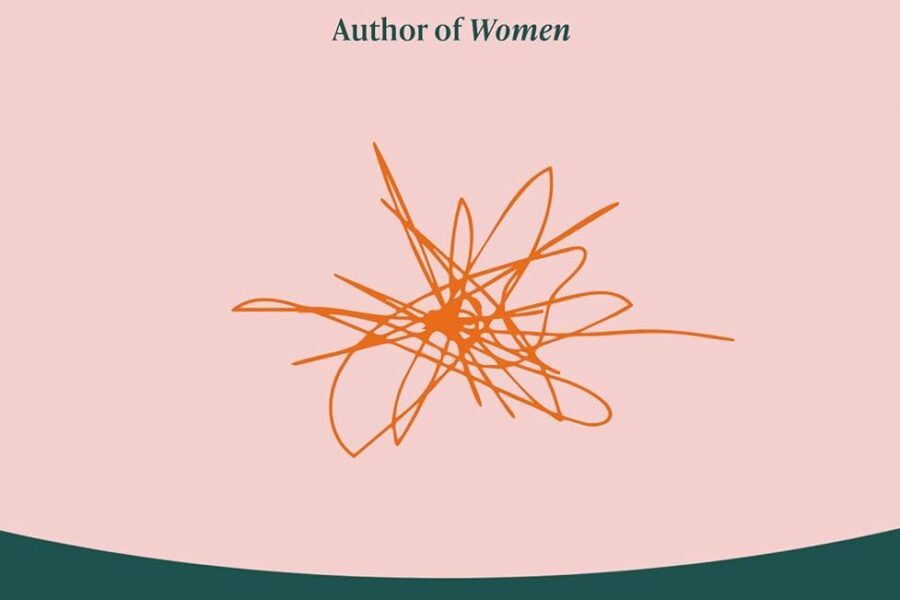
Japanese writer/director Kenichi Ugana has made a name for himself among cult and genre fans, with chaotic hits such as Love Will Tear Us Apart, We Are Aliens, and The Gesuidouz. Usually delivered in a collision of genres, like comedy, horror, and fantasy, Ugana’s films often explore the human condition while showcasing his passion for horror, punk rock, and absurd premises. My first introduction to him, however, is via his latest film, I Fell in Love with a Z-Grade Director in Brooklyn, which had its world premiere at Fantasia Festival on Wednesday. As its delightfully eccentric and lengthy title suggests, this is a self-aware indie romcom about two misfits from different backgrounds who develop a strong connection to one another.
During a press interview for her latest film, Japanese actress Shina (Ui Mihara) sits absentmindedly staring at her nails. Jaded by her career and lifestyle, she’s bored, detached, and doesn’t have anything to say. It’s only when she realises that the interviewer hasn’t seen her film that Shina snaps back into the present, more engaged. In Brooklyn, indie filmmaker Jack (Estevan Muñoz) is consumed by his love for punk and horror flicks, declaring that “Japan has the best horror and punk rock out there, man!” But, while working on sets for Crummy Entertainment producer Rusty (Larry Fessenden), even Jack is starting to feel miserable. Is his dream of directing his own movie even possible?
After losing motivation as an actor, Shina escapes to New York with her boyfriend, Ren (Katsunari Nakagawa). Ugana’s writing excels here as he demonstrates a masterclass in showing, not telling. We learn so much about Shina and Ren through their actions, words, and facial expressions. Shina makes Ren carry her phone and purse, which he accepts without protest. At a restaurant, Shina complains about the cold AC and the American custom of tipping. When Ren comments on this, she tells him: “I’m just giving my impression is all. You don’t have to argue with me every time—just nod and agree, that’s what I want.” Upon seeing Shina’s change of behaviour in Brooklyn, Ren builds up the courage to ask what she loves about him, but this is a hard question for Shina to answer. He’s hot, rich, and popular, nothing more than a designer handbag. Ren breaks up with her when he realises they both see each other as nothing more than an accessory.

Alone in a foreign country without her phone, purse, or luggage, Shina is a fish out of water—but the situation allows her to meet someone and experience something she wouldn’t have otherwise. Upon meeting Jack, Shina agrees to star in his movie in exchange for a place to stay. Shina is taken by Jack’s charming and passionate energy, while he sees her as a quintessential beauty, his horror muse. At first, they communicate using a translator app, but the language barrier fades as they become more and more in sync with each other. Shina finds herself having fun on set and enjoying acting again, while Jack is more connected to his passion than ever. His dreams are coming true!
Jack’s ragtag crew is made up of co-star Chip (Stephen Solomon), assistant director Rikki (Jordan Dallam), director of photography Cassio (Madeline Barbush), sound guy Boomer (Daniel Martin Berkey), and TJ (Lissa Carandang-Sweeney) who’s in charge of hair and makeup. These mostly unknown actors are a wonderful addition to the film, and their characters help make the underground punk film scene in Brooklyn come alive alongside the striking mise-en-scène, which immerses us in the film’s world. Jack’s place alone is cosy and well-lit, decorated with film posters for Night of the Living Dead, The Texas Chain Saw Massacre, and Suspiria, and music posters for bands like The Ramones, Sex Pistols, and Pearl Jam.
As a romcom, Z-Grade is a charming and joyous experience, evoking slice-of-life films like Before Sunrise and Night on Earth. Ugana highlights the importance of creating art for the sake of passion and connection rather than out of obligation or for the purpose of seeking fame. Jack’s passion shines through and is genuinely infectious—not just for Shina, but for the audience, too. The humour is also successfully constructed, natural to the film’s situation and characters. For example, this scene as the result of the language barrier: Jack, with his translator app open, is explaining the plot of his movie to Shina, all while she’s making odd comments about her makeup being too pale and wanting something to eat, but no one understands her. “It’s still not translating,” she says of the app, but on and on Jack goes, lost in his own excitement.
Z-Grade is a hidden gem. It’s beautifully shot, with thoughtful filmmaking and self-aware writing that cleverly reflects on the film’s own narrative and themes. Outside of dialogue and diegetic sound, the film is marked by noticeable silence that never feels out of place. This allows the score to be more effective when it does appear, enhancing certain scenes with a touch of additional magic. Overall, Z-Grade is a rich and endearing experience for genre fans that kept a smile on my face the entire runtime. This is what cinema is all about, baby! Be sure to stay tuned for the post-credits scenes that are both delightful and funny, with a special cameo appearance from Troma Entertainment filmmaker Lloyd Kaufman.




Leave a Reply